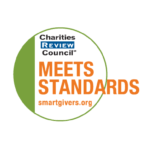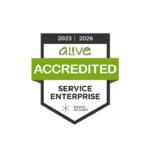
In October 2024, Trellis, in collaboration with Clare Housing, END HIV MN, Hennepin Healthcare, Midwest AIDS Training and Education Center, Rural AIDS Action Network, SAGE, The Aliveness Project, Out & Sober Minnesota, Open Arms of Minnesota and ViiV Healthcare, conducted the first of three listening sessions focused on understanding the health and service needs of people aging with HIV. The first listening session in the series considered the views of people aging with HIV living in the Twin Cities.
“It is critical we listen to understand the unique healthcare and support needs of aging HIV-positive individuals,” says Trellis ElderCare Development Partnership Coordinator Bill Tiedemann. “With the information we gather from these sessions, our goal is to work with our partners to develop more targeted and comprehensive systems of care.”
Key themes emerged from the listening session focused on the holistic well-being, healthcare challenges, and support needs of older adults living with HIV in the Twin Cities. The discussions addressed mental and physical health concerns for long-term HIV survivors, with a particular emphasis on aging, access to services, Medicare and insurance navigation, transportation challenges, and the importance of community support.
Participants shared personal stories highlighting the evolution of HIV treatment, ongoing stigma and discrimination, and the critical need for comprehensive care that addresses not just medical treatment, but also mental health, housing and social support. The conversations underscored the resilience of HIV survivors while also revealing the complex systemic challenges they continue to face in healthcare, social services and community integration.
“We heard from participants that while progress has been made treating HIV, healthcare and other systems have a long way to go to fully serve older adults living with HIV,” says Tiedemann.
It has been roughly 40 years since the onset of the HIV/AIDS epidemic, and thanks to extraordinary advances in antiretroviral therapy and support services, survivors are now living long, healthy lives. For this reason, more than half of people diagnosed with HIV in the United States are age 50 and older. By 2030 that number will rise to 70%. Now, researchers, doctors, and patients are once again facing questions with uncertain answers on what to expect from HIV in aging bodies.
In early 2025, two additional listening sessions will be held in Duluth and Rochester to gather insights from individuals living with HIV in rural areas across Minnesota. The findings of all three listening sessions will be complied and shared with the broader community of people aging with HIV, relevant support organizations, government partners, and the aging services network. Additionally, the information gathered will support the development of the HIV/Aging Coalition.
About the HIV/Aging Coalition: Initially introduced in late 2019, the HIV/Aging Coalition formed to give voice to individuals living with HIV over the age of 50. Early in 2020, as a result of the COVID-19 pandemic, the coalition’s work was put on hold. In 2024 a group of interested consumers, community organizations and government partners convened to reestablish the coalition. Currently the original charter is under review, including the coalition’s organizational structure.
If you are interested in joining the coalition, please contact Bill Tiedemann, MSW, LGSW at btiedemann@trellisconnects.org.
Financial support for listening sessions has been made possible through a generous grant through Broadway Cares/Equity Fights AIDS.



